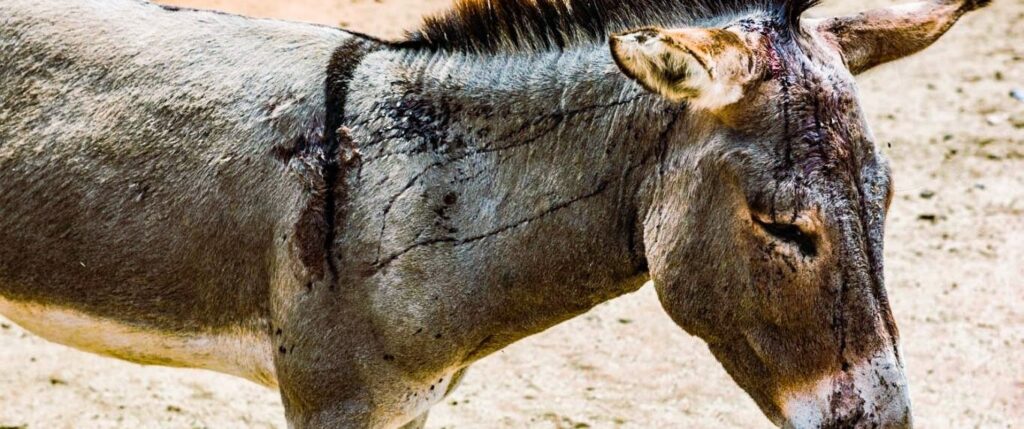Adapted from article written by Murphy Nganga
Originally published by Weekend Argus
An urgent call to put an end to the growing donkey skin trade is slowly picking up momentum after Network for Animals (NFA) reported that the domesticated animal might become extinct in the next five years if the trade continues at the current rate.
As the world’s donkey population is estimated to be around 44 million, the report indicated that the donkey skin trade required 10 million donkey skins every year for the production of gelatine, which is used to make a specialized cosmetic skincare cream produced in China.
Marc Ward, a senior cruelty investigator at Have a Heart Equine Sanctuary, said that while the use of the donkey skin has no scientific evidence that it works, companies continue to make millions off the trade, leaving rural communities in shambles, as donkeys are used as a form of transport, either to get their children to school or transport items in their cart.
“Donkeys are drastically dropping worldwide because they are continuously being hunted and stolen from vulnerable communities. What makes matters worse, is that the companies who produce the product are making millions, yet there is no scientific evidence that proves that the donkey skin actually works for this beauty product.
“As a result, a lot of donkeys are stolen and this is causing locals to lose income because they use donkeys to fetch water, plough the fields and transport items in their cart, which brings in money for their families,” said Ward.
As slaughterhouses continue to partake in the trade, NFA executive director David Barritt said that corruption and flouting of local laws by traders is part of the problem and if donkeys can’t be bought, gangs are recruited to steal them for the trade.
“The sheer ruthlessness of the trade is astonishing. In South Africa, the donkey skin trade is thriving, as some donkeys are led into makeshift, illegal slaughterhouses in the bush, where they are clubbed unconscious and skinned. Very often, the donkeys are flayed alive.
“One can see that corruption plays a massive role in facilitating the trade from top to bottom, from authorities who allow slaughterhouses to operate despite the devastation it causes, to police officers who are paid to turn a blind eye to wrongdoing,” said Barritt.
While a lot of donkeys are stolen, which in turn causes locals to lose income, Ward said that the only way the trade can be stopped is if there is a collaborative effort from everyone to stand together and end it.
“The best way is to support and stand by organizations who are working closely with a number of governments to implement bans or restrictions on the slaughter of donkeys and export of donkey products.
“We have found that in some cases, the ban has caused the trade to move underground, and so we believe that enforcement is critical to ending this trade.
“Have a Heart Equine Sanctuary and Network for Animals is helping run workshops with locals and ensuring that laws and regulations are effectively imposed.
“We’re also directly engaging with the communities that have been impacted by the trade, but the best way is to stand side-by-side to raise global awareness of the issue among retailers and help authorities keep track of the illicit trade.
“We know as an NPO it is nearly impossible to stop cruelty without the funds, hence Have a Heart Equine Sanctuary will do whatever it takes to help combat this inhumane industry,” said Ward.

